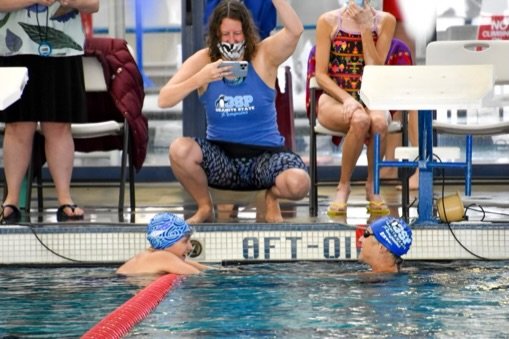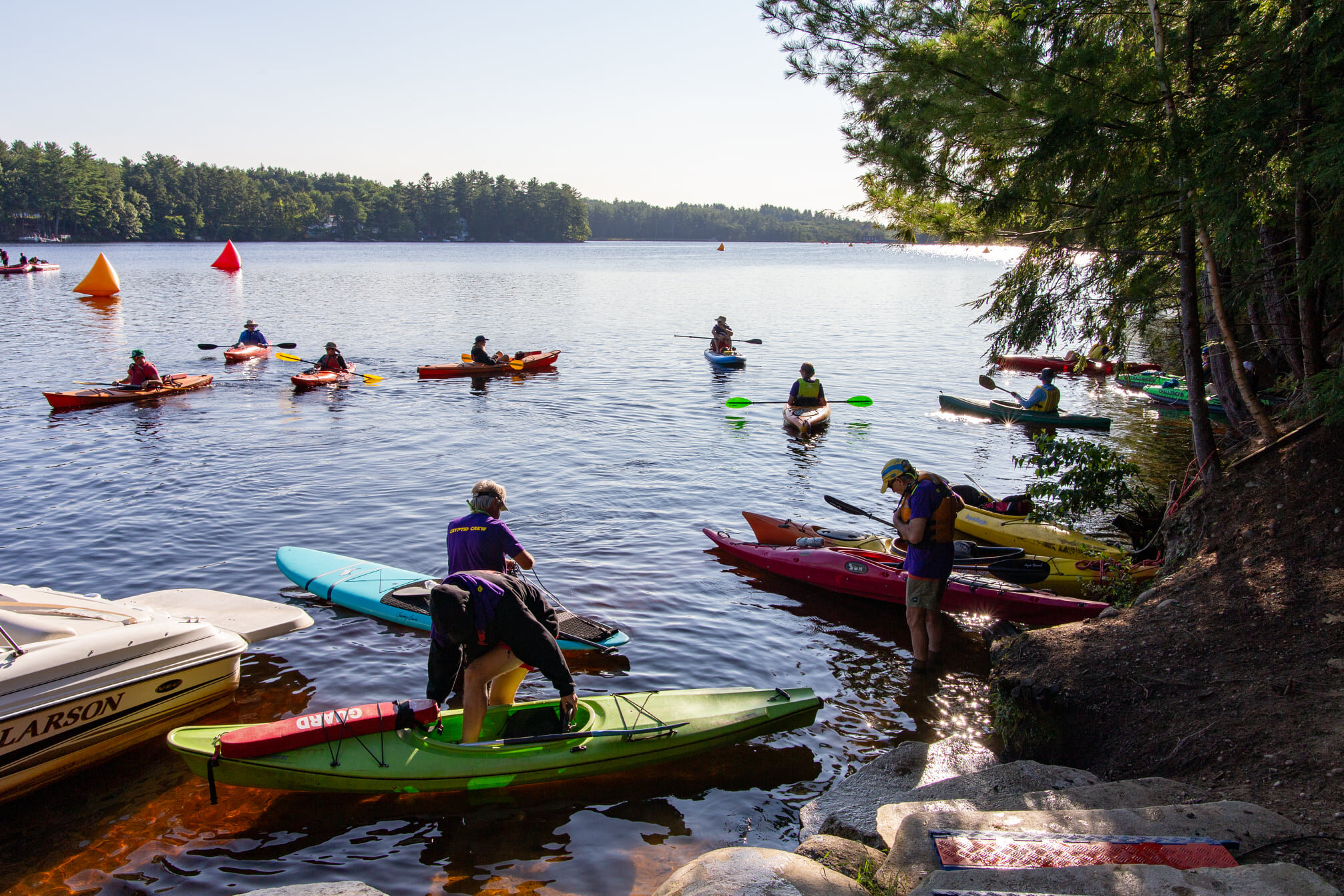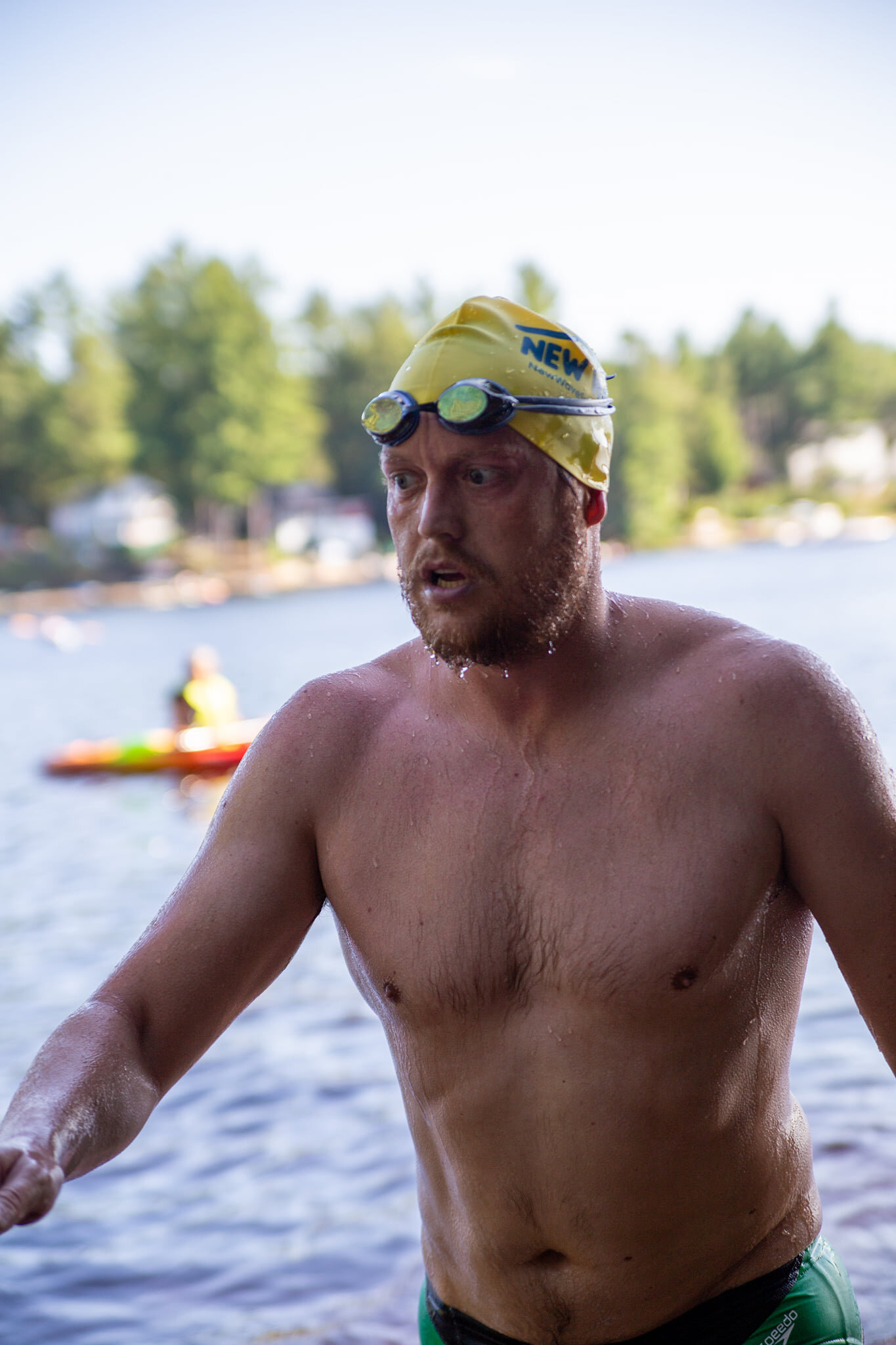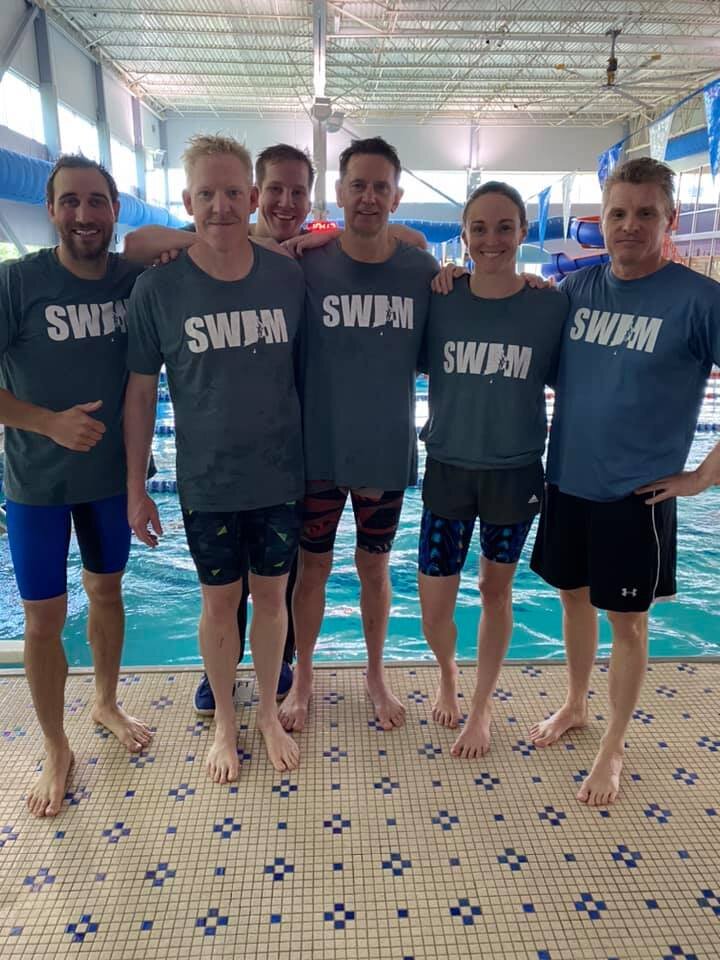By Sarah Sutton
SwimRI contingent of NEM at USMS Summer Nationals
Sarasota, FL - The first week of August, I hopped a flight to Sarasota, Florida with several of my SwimRI training partners and joined the rest of our NEM team for a reverse snowbird trip to USMS Long Course Nationals.
“Why would you go to Florida in August?” our friends, family, and co-workers, who don’t understand what could possibly drive a person to swim thousands of yards each week, let alone go to swim meets for grownups, asked us.
I won’t lie – I asked myself the same question when we stepped off the plane into a heavy blanket of wet air and the scorching Florida sun.
This meet was going to be an adjustment for us New Englanders – who are used to swimming backstroke under a pool with a roof; who can barely handle a few weeks of humidity in the summer; and who had only managed about 10 days of training in a long course pool before this meet. To make matters worse, the meet started at 7 a.m. most days (with warmups at 6!), a problem for our group as Chuck Barnes is allergic to swimming before noon.
But the water at the Selby Aquatic Center in Sarasota was mercifully cool, and the timers were brave enough to withstand the heat and dump buckets of cold water onto the blocks before each race so we wouldn’t burn our feet.
All in all, it was a strong week of racing for both SwimRI and our NEM teammates. Our little group left the meet with multiple New England and national records, a world record for Chuck in the 100 backstroke, and 10 first place finishes. I lost count of the New England records set by the NEM relay teams. And as a group, the 24 swimmers from New England Masters finished second overall in the regional club category.
I learned several lessons from my first long course meet since high school:
The pace you “think” you can keep in the mile in a long course pool is much faster than the pace you will actually be able to keep.
It’s possible to completely die in the last ten meters of a 50-meter sprint.
It’s not a great idea to use your flip turns to catch your breath, as it will only slow you down and won’t make you any less tired. (My counter in the mile, Tara Mack, told me she thought I was going to stop and say hi every time I approached the wall).
The pool feels longer than 50 meters when you’re swimming backstroke and can’t see how far away the wall is.
When lightning flashes in the middle of a relay, 9 out of 10 masters swimmers will leap from the blocks and finish the race, so they won’t have to swim it again.
Chuck Barnes may look superhuman when he swims… but if you wake him up before 10 a.m., he struggles to even get in the pool to warm up. Coffee doesn’t help.
Don’t let Stuart Cromarty show you and your teammates’ races on replay… he’ll freeze frame all your mistakes and you’ll hear about them for months to come!
Cheering for your teammates becomes even more fun after you sneak out of the meet for a few beers.
Did I already say that the mile in a long course pool is ridiculously hard?
Chuck Barnes, Sarah Sutton and Stuart Cromarty enjoying the beach life.
The best part of the trip may well have been the last day, when, exhausted from 5 days of racing, we split our time between the tiki bar and diving for sand dollars at one of the most beautiful (and warmest) beaches I’ve ever visited.
For those of you who have never been to a USMS Nationals meet, it’s always well worth the trip – to race with your teammates, to be a part of awesome NEM relays, to visit new places, and to meet other swimmers from all over the country. Hope to see more of you at the next one!
Sarah Sutton swims for workout group SwimRI and club team New England Masters.

















